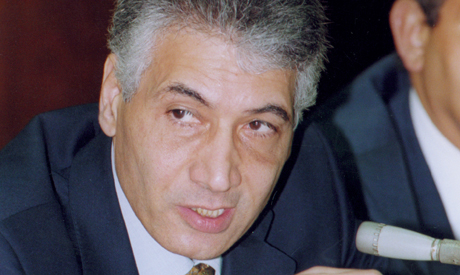Egypt’s Minister of International Cooperation Rania Al-Mashat has said that the novel coronavirus (COVID-19) pandemic has highlighted the need for investing in development and human capital.
The minister added that, while the pandemic shook the world economically, politically, and socially, it also served as a wakeup call highlighting that diseases can cause severe disruptions to all aspects of life.
The COVID-19 pandemic has also re-emphasised multilateralism, as it pushed for stronger cooperation between countries to meet evolving humanitarian needs.
With economic integration, the Middle East and North Africa (MENA) region can further develop, due to its regional competitiveness and intraregional trade and investment.
These aspects can be further facilitated through collaboration between countries, and flexible trade and investment policies. The time to rebuild trust and to make crucial choices is fast approaching, as the need to reset priorities and the urgency to reform systems grow stronger around the world.
The minister’s remarks came on the fourth day of the 2021 World Economic Forum in Davos, where the Regional Action Group for the MENA region met virtually. As part of the meeting, they discussed the policies, practices, and partnerships needed to implement stakeholder capitalism and catalyse the region’s transformation for the post-COVID-19 era.
Under the theme of a “Crucial Year to Rebuild Trust”, the Davos Agenda brings together world leaders from government, business, international organisations, civil society, and academia for a more inclusive, cohesive and sustainable future.
At the meeting, Minister Al-Mashat was joined by: Alain Bejjani, CEO of Majid Al Futtaim Group in the UAE; Mohammad Jaafar, Chairperson and CEO of the Kuwaiti Danish Dairy; and Badr Jafar, CEO of Crescent Enterprises in the UAE.
The participants discussed the region’s priorities in fostering a sustainable and inclusive post-pandemic recovery in a session moderated by Hadley Gamble, a reporter and anchor at CNBC.
Furthermore, the session identified the role played by policy makers and the private sector in shaping the post-COVID-19 future for the MENA region.
In September 2020, Minister Al-Mashat joined the MENA region’s foremost decision makers in advocating a shared vision for stakeholder capitalism. This would be implemented through the Principles of Stakeholder Capitalism for the Middle East and North Africa, a roadmap that advocates the importance of public-private collaboration.
It includes action points such as: crafting inclusive economic policies and a new social contract; stimulating economic integration; reshaping education systems; harnessing the fourth industrial revolution; promoting environmental sustainability; mitigating global health risks; and committing to good and agile governance, whilst re-emphasising the importance of private-public collaboration.
The roadmap task is an integrated approach to the UN’s Sustainable Development Goals (SDGs), and is focused on effectively incorporating the SDGs into national development strategies.
Minister Al-Mashat noted that the seven Principles of Stakeholder Capitalism also align with the SDGs. The first principle, crafting inclusive economic policies, helps achieve: SDG Goal 1 for fighting poverty; Goal 2 for ending hunger; Goal 3 for good health and well-being; Goal 5 for gender equality; Goal 8 for decent work and economic growth; and Goal 10 for reducing inequalities.
The second principle (stimulating economic integration) helps achieve Goal 17 for Partnerships for the Goals and Goal 8 for Decent Work and Economic Growth. The third principle (reshaping education systems) helps achieve Goal 4 for Quality Education, Goal 8 for Decent Work and Economic Growth and Goal 10 for Reduced Inequalities.
The fourth principle (harnessing the fourth industrial revolution) helps achieve Goal 9 for Industry, Innovation and Infrastructure, while the fifth principle (promoting environmental sustainability) achieves Goal 7 for Affordable and Clean Energy, Goal 11 for Sustainable Cities and Communities, Goal 12 for Responsible Consumption and Production, Goal 13 for Climate Action, Goal 14 for Life Below Water and Goal 15 for Life on Land.
The sixth principle (mitigating global health risks) achieves Goal 1 for No Poverty, Goal 2 for End Hunger, Goal 3 for Good Health and Wellbeing, and Goal 10 for Reduced Inequalities.
Finally, the seventh principle (committing to good and agile governance) helps achieve Goal 16 for Peace, Justice and Strong Institutions.
Egypt is committed to the principles of stakeholder capitalism, noted Minister Al-Mashat, who presented the first of its kind mapping exercise. As part of this, she outlined the seven principles with the UN SDGs, across the Ministry of International Cooperation’s development portfolio.




